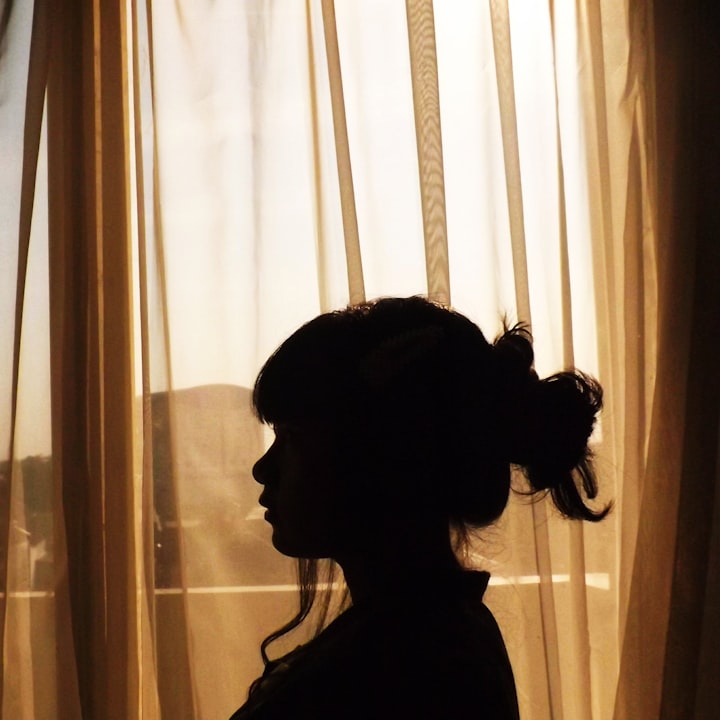The ADHD Symptom No One Talks About
How I discovered Rejection Sensitive Dysphoria was controlling my life

In third grade, Jeff was the coolest kid in our class. He was friends with everyone; kids wanted to sit with him at recess, to play soccer with him at lunch on the wide gravel field. His jokes got laughs from the entire class, often derailing lessons much to the dismay of our teacher. Jeff was so popular that adults would need to intervene to help him decide which kids to partner with during group projects, the long line of hopeful acquaintances snaking away from his desk.
Jeff tormented me. His presence sent me into spirals of insecurity and self-loathing. My mother remembers listening to me cry about all the things Jeff did and said that made me feel worthless and invisible. In the fifth grade, I eventually moved schools, eager to flee the fraught emotional battlefield of my small, rural elementary school.
Looking back, it's hard for me to parse apart Jeff's actions and my feelings about him. As a young girl, I was convinced he had bullied me. I ran home from school one occasion, terrifying my teachers and startling my mother, who has not expected me home for several hours. When asked why I bolted, I could only explain that Jeff had been mean. My mother tried to get me to explain what he had done. Had he said something about me? Had he done something unkind? I couldn't articulate what had occurred, only express the deep knot of pain pulsating in my chest.
*
Years after elementary school, I was never able to pinpoint exactly what Jeff had done. For years, I wondered if I had blocked something out. Had I simply erased an incident of bullying from my memory? The idea that I was bullied stuck with me; it was an emotional truth I felt in my core and yet I could not recall a shred of evidence that Jeff had ever said or done anything to hurt me.
For as long as I can remember, I have been a sensitive person. As an adult with ADHD, I have come to understand one of the lesser known symptoms of the disorder: Rejection Sensitive Dysphoria (RSD). RSD is one of the most painful symptoms of ADHD, but no one really talks about it. I've had ADHD since childhood and yet I only learned the name for aspect of my reality this year, in my early thirties.
Rejection Sensitive Dysphoria is the tendency for individuals with ADHD to be intensely sensitive to perceived rejection. You read that correctly: perceived rejection. This means that people with ADHD do not actually need to be rejected to experience acute pain when interacting socially with others. Instead, we interpret the most mild or benign shifts in tone as indications of dismissal, or even dislike. The effects are both emotionally devastating and disorienting, leaving sufferers confused and unable to accurately gauge the feelings of their loved ones. Small changes in a parent or a significant other's facial expression can lead to panic attacks, the sensation that any relationship is inching towards disaster at any given moment.
In my experience, RSD has caused a lot of heartache and frustration. Unless I am consciously reminding myself that my emotional reactions are skewed, I easily fall into the trap of RSD: believing that everyone is mad at me, sick of me, or ready to walk away from me forever. It can be incredibly draining to field constant questions from loved ones with ADHD. We are not easy to convince, often trusting our own perceptions over the responses of our loved ones. We check in multiple times a day, seeking confirmation that our gut instincts are correct, refusing to accept that our emotional cues might simply be wrong.
For me, RSD has been one of the most challenging aspects of my ADHD. This isn't to say that the lack of focus, time-blindness, or executive function deficits haven't been extremely difficult. But, RSD is an all-consuming, persuasive monster, often causing conflicts in relationships due to my intense, persisting suspicions that people are mad at me. In a way, the feelings my RSD elicits are self-fulfilling prophecies. If a friend wasn't already mad at me, they sure might start to get annoyed after the third, fourth, or fifth time I ask about it.
*
The good news is that RSD is treatable. Unlike many other ADHD symptoms, which are easily treated with medication, RSD is often best treated through therapy. There are a lot of counsellors and mental health professionals who specialize in ADHD and similar developmental disorders. With time, patience, and self-reflection, things can feel more bearable. If you or a loved one have ADHD, there are always ways to find support. In my experience, naming and recognizing RSD has been a great first step towards feeling calmer, safer, and happier in my relationships.

About the Creator
Erin Eliza
I am a queer educator, writer, yoga instructor, and animal petter living in the PNW. I write about ADHD, teaching, yoga, and trauma recovery. I teach yoga on IG Live Monday - Saturday @erindoesyogaeverymorning.






Comments
There are no comments for this story
Be the first to respond and start the conversation.